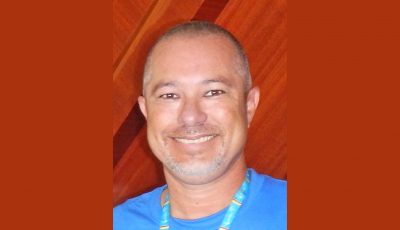We are People First
July 26, 2021, marks the 31st anniversary of the Americans with Disabilities Act, or ADA. The ADA, in my opinion, is the greatest piece of civil rights legislation created for people with disabilities. Basically, the ADA prevents discrimination based on disability in areas such as employment; access to government services and programs; and access to businesses throughout our community.
I have learned that one way to ensure people with disabilities are treated equally is through the use of People (or Person) First Language. The idea is to place the importance of an individual on them as a person first, not based on a diagnosis or impairment. When we put the person first, we are showing persons with disabilities the dignity and respect we each have as members of our community and that we are PEOPLE.
Person First language came around in the ’80s in an attempt to “create a more equitable society,” (Kirszenbuam, 2015). It was a way for citizens to move away from the use of derogatory words used to describe people with disabilities. This movement led us as a society to move away from the use of hateful, hurtful words like crippled, crazy, retarded, or handicap. When we refer to others by these terms, we are not showing dignity and respect as a person.
The use of People First language can come with ease after regular use. Instead of saying, “the blind man or the wheelchair-bound girl,” we can say, “a man who is blind or the girl who uses a wheelchair.” We should remember that a word like handicap is defined as “to put at a disadvantage” (Merriam-Webster). This a term used in sports, like golf, and should not be used to describe people or things. Even the term “Handicapped Parking” is improper, as the parking space is used for the accessibility of people with disabilities and should instead be called “Accessible Parking,” but I digress as this is a topic for another day.
The use of people first language was emphasized with the creation of the ADA in 1990, in which it looked at us as Americans with disabilities, again putting people first. During that same year, other laws were given a facelift using People First language, such as the Education for All Handicapped Children Act having its name changed to the Individuals with Disabilities Education Act, or IDEA.
When, as a community, we use words that do not show each other the dignity and respect we deserve, it may lead to disparate treatment, stigma, and/or discrimination based on disability. After 31 years of the ADA being in our lives, I find it important to support our community members with disabilities and think of them as People First.
If you or someone you know has been discriminated against based on disability, contact the Northern Marianas Protection & Advocacy Systems, Inc. at 235-7273/7274 or visit us online at www.nmpasi.org.
Greg Borja (Special to the Saipan Tribune)
Greg Borja is program manager of the Northern Marianas Protection & Advocacy Systems, Inc.

























